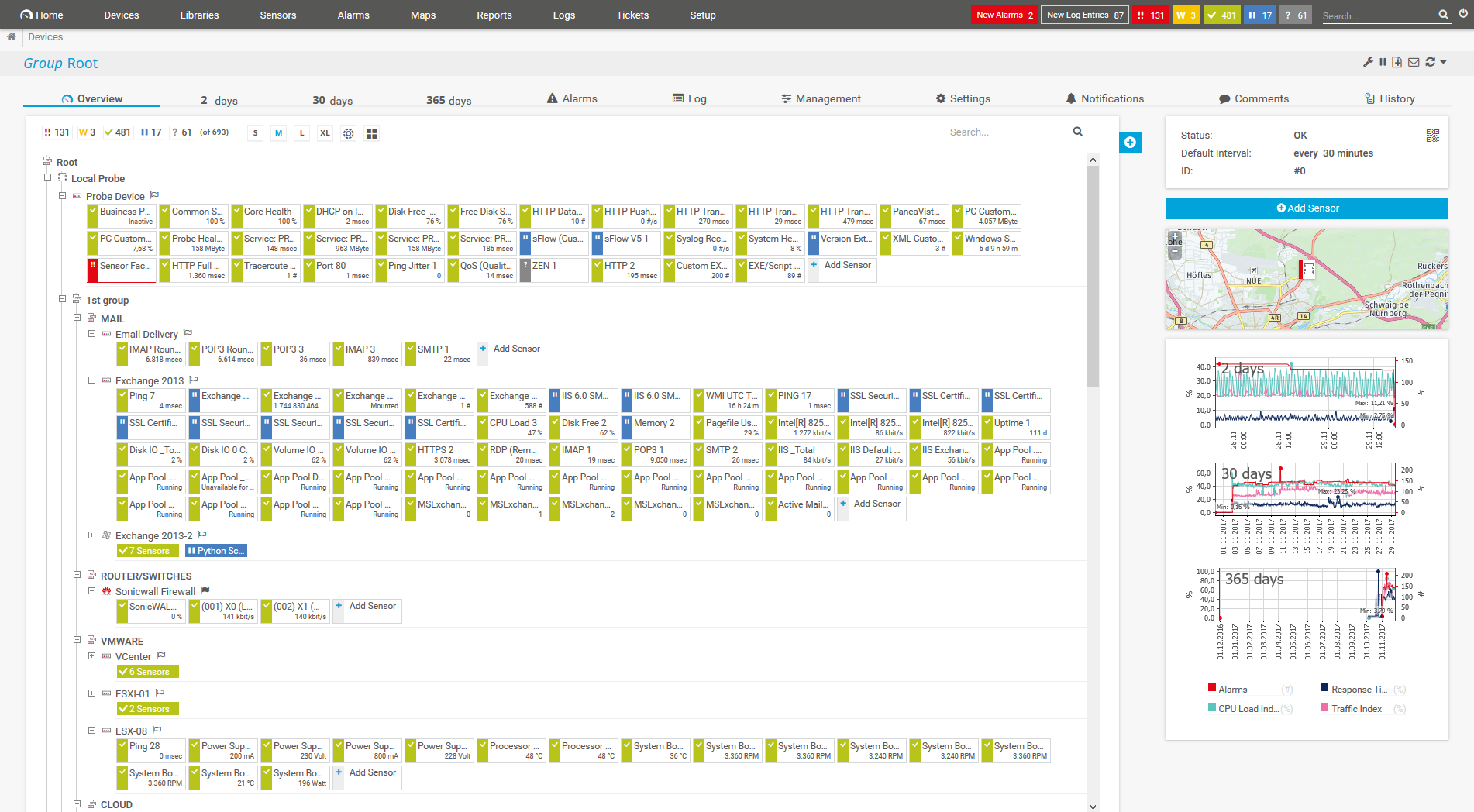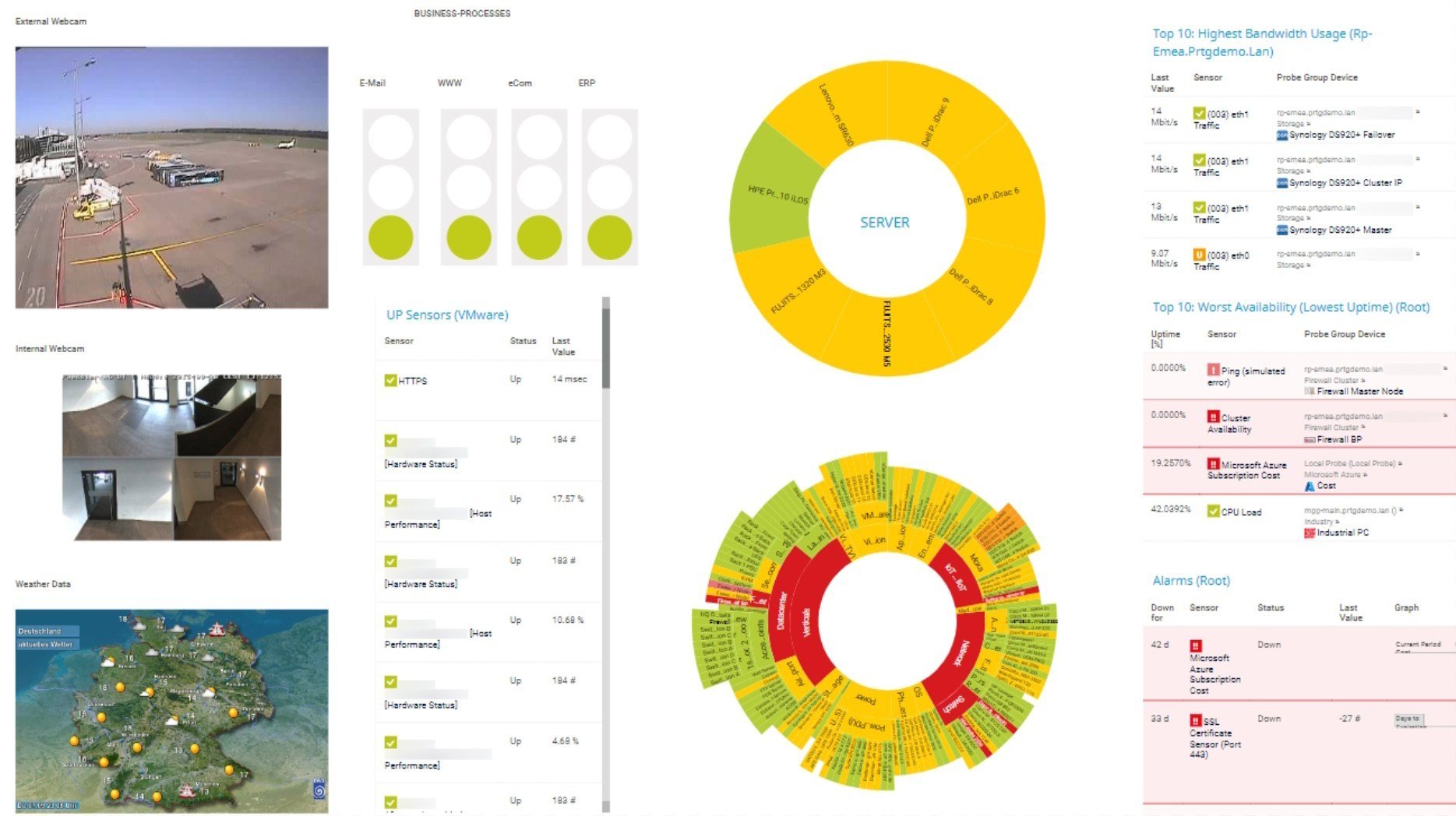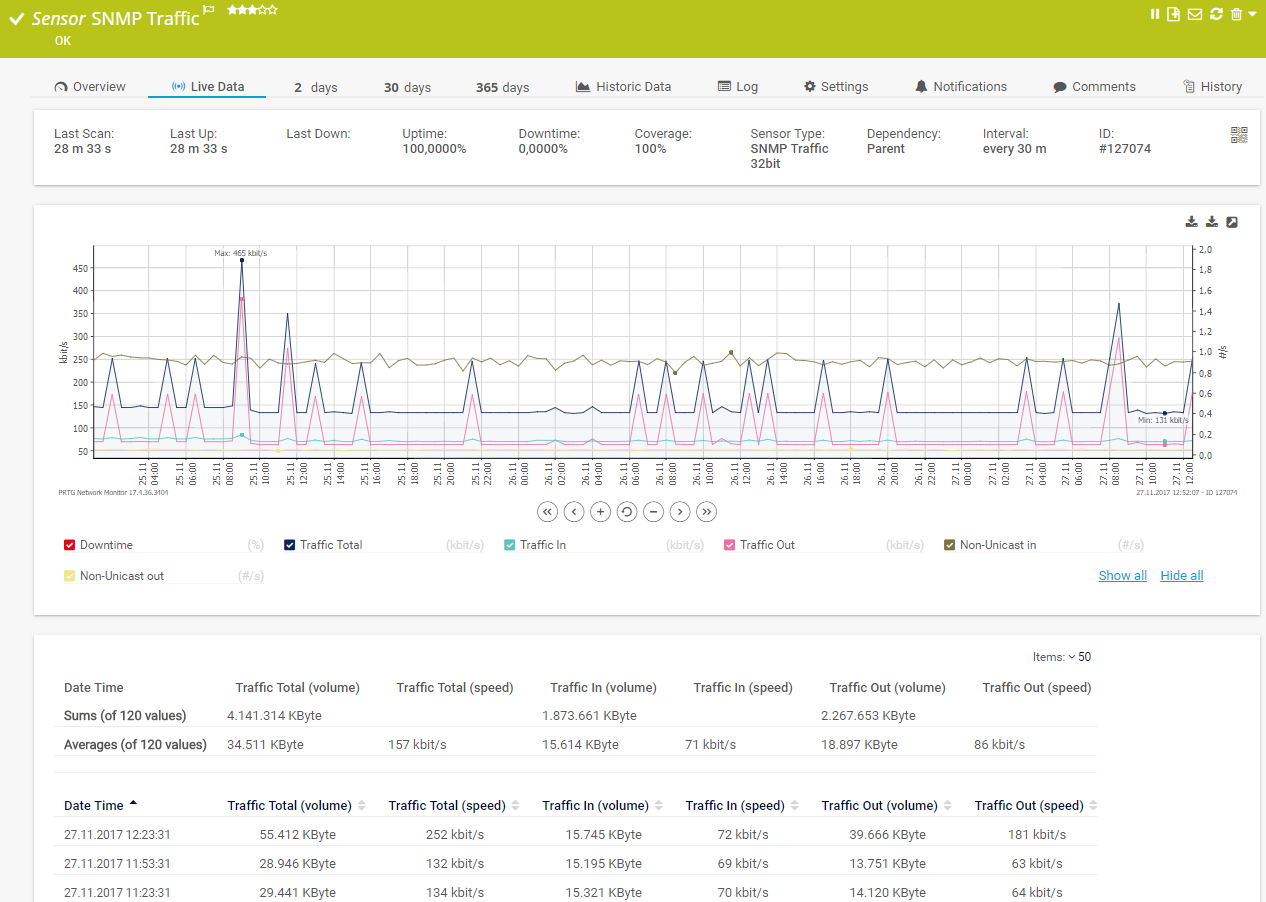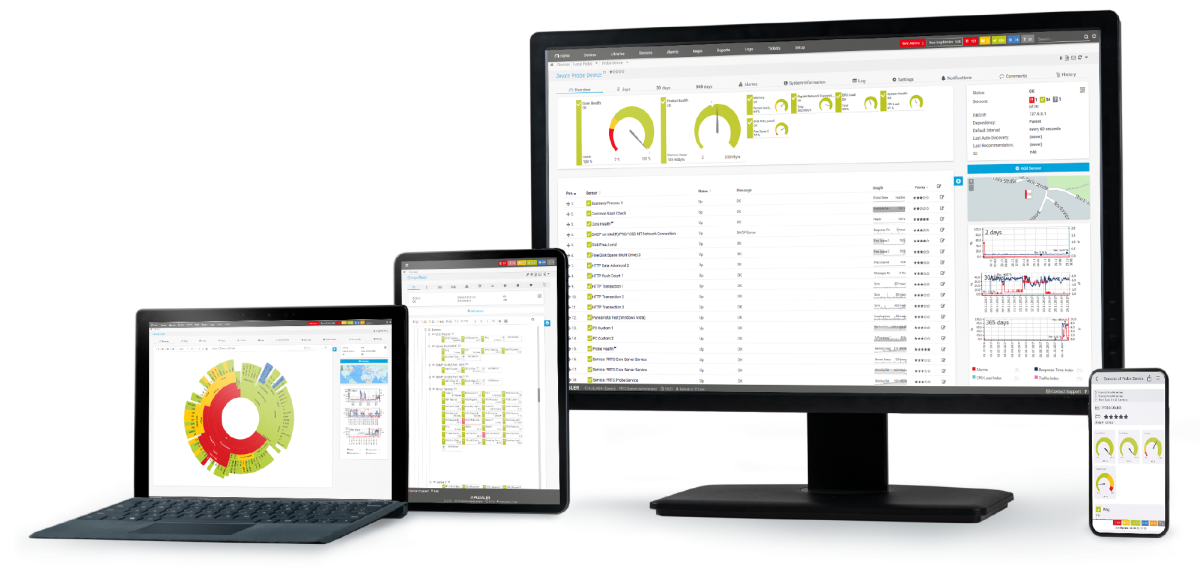Custom alerts and data visualization let you quickly identify and prevent all kinds of Voice over IP issues.
VoIP systems such as IP telephone systems or VoIP services of an external service provider are often plagued by quality issues, including poor to mediocre voice quality and sudden interruptions in calls. Paessler PRTG identifies potential VoIP errors and weak spots so you can fix them at once.
VoIP errors can cause annoying static, echoes, sudden dropped calls, and more. These errors are mainly due to packet loss and long latency times, which affect the quality of your connection.
PRTG keeps a constant eye on these parameters, as well as jitter values. It also monitors your Mean Opinion Score (MOS) so you can evaluate the overall voice quality of your calls.
IP calls can bug for many reasons. Your VoIP gateway may be improperly configured, your SIP provider may be skimping on bandwidth, or users may not be familiar with how VoIP calls work.
PRTG helps you keep track of all these issues round the clock so you can spot and fix VoIP-related errors quickly, even before end users notice.
PRTG immediately sounds the alarm based on preset thresholds if errors or malfunctions crop up in your VoIP call quality, and alerts you by SMS, email, push notification, or other methods.
Our VoIP monitoring software reveals the cause of the problem, allowing you to troubleshoot faster, eliminate errors, and avoid costly VoIP downtime.
As an all-in-one network monitoring tool, PRTG supports the most popular network device manufacturers out of the box, including Cisco, Dell, HPE, or Lenovo.
Use, for example, PRTG’s preconfigured sensors for monitoring Cisco routers and switches, which let you keep a close eye on Cisco’s IP SLA or Class Based Quality of Service (CBQoS) values.
Diagnose network issues by continuously tracking VoIP performance. Show bandwidth usage, latency, jitter, packet loss, the MOS score, and other key performance metrics in real time. Visualize monitoring data in clear graphs and dashboards to identify problems more easily. Gain the overview you need to troubleshoot VoIP quality and all kinds of other network quality issues.

Device tree view of the complete monitoring setup

Custom PRTG dashboard for keeping an eye on the entire IT infrastructure

Live traffic data graph in PRTG
Get a comprehensive overview of your network performance, including detailed metrics on VoIP traffic. This way, you can quickly identify any issues that may arise and optimize your VoIP network on the fly.
Get your VoIP monitoring tool up and running quickly with PRTG's user-friendly setup. VoIP metrics can be seamlessly integrated into your existing IT infrastructure for an efficient monitoring experience.
Tailor your monitoring solution to fit the unique needs of your organization. PRTG’s flexible configuration options let you customize alerts, sensors, reports, and dashboards ensuring that you're always in control.
Enjoy PRTG’s industry-leading support by monitoring experts. Trust in a monitoring system that's there for you and makes sure your VoIP communications are always at their best.
PRTG comes with more than 250 native sensor types for monitoring your entire on-premises, cloud, and hybrid cloud environment out of the box. Check out some examples below!
See the PRTG Manual for a list of all available sensor types.
Custom alerts and data visualization let you quickly identify and prevent all kinds of Voice over IP issues.
PRTG is set up in a matter of minutes and can be used on a wide variety of mobile devices.


As a member of the Cisco Partner Program, Paessler is one of the market leaders that enhances the Cisco technology portfolio with products that are proven to easily integrate with Cisco devices.
What does this mean for you?
Partnering with innovative IT vendors, Paessler unleashes synergies to create
new and additional benefits for joined customers.
Integrating monitoring results from PRTG into NetBrain maps makes the foundation for network automation.
IT that works constitutes a business-critical basis for a company's success. Availability and security must be defined for the respective purpose and closely monitored – by OT and IT alike.
With ScriptRunner Paessler integrates a powerful event automation platform into PRTG Network Monitor.
Real-time notifications mean faster troubleshooting so that you can act before more serious issues occur.
Network Monitoring Software – Version 25.3.110.1313 (August 27, 2025)
Download for Windows and cloud-based version PRTG Hosted Monitor available
English, German, Spanish, French, Portuguese, Dutch, Russian, Japanese, and Simplified Chinese
Network devices, bandwidth, servers, applications, virtual environments, remote systems, IoT, and more
Choose the PRTG Network Monitor subscription that's best for you
VoIP, or Voice over Internet Protocol, is a technology that allows people to make voice calls using an internet connection instead of a traditional phone line. It converts your voice into digital signals, transmits them over the internet, and then reconverts them into sound on the other end of the call. This method is typically more cost-effective than traditional phone services, especially for long-distance or international calls.
VoIP (Voice over Internet Protocol) connections can experience a variety of issues that affect call quality, reliability, or the ability to connect. Some common VoIP connection issues that often require troubleshooting include:
Depending on the issue you have with VoIP, you can take different measures to troubleshoot your VoIP system. Here are some examples:
Poor call quality
Dropped calls
Echo
Inability to make or receive calls
Use VoIP monitoring tools like Paessler PRTG to keep an eye on different parameters that can affect network quality, for example:
In PRTG, “sensors” are the basic monitoring elements. One sensor usually monitors one measured value in your network, for example the traffic of a switch port, the CPU load of a server, or the free space on a disk drive. On average, you need about 5-10 sensors per device or one sensor per switch port.
Paessler conducted trials in over 600 IT departments worldwide to tune its network monitoring software closer to the needs of sysadmins. The result of the survey: over 95% of the participants would recommend PRTG – or already have.
Paessler PRTG is used by companies of all sizes. Sysadmins love PRTG because it makes their job a whole lot easier.
Bandwidth, servers, virtual environments, websites, VoIP services – PRTG keeps an eye on your entire network.
Everyone has different monitoring needs. That’s why we let you try PRTG for free.